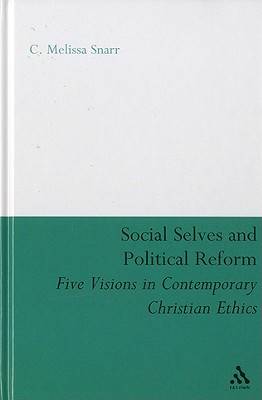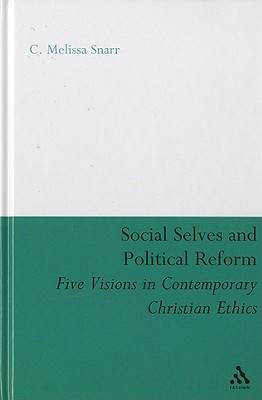
- Afhalen na 1 uur in een winkel met voorraad
- Gratis thuislevering in België vanaf € 30
- Ruim aanbod met 7 miljoen producten
- Afhalen na 1 uur in een winkel met voorraad
- Gratis thuislevering in België vanaf € 30
- Ruim aanbod met 7 miljoen producten
Zoeken
Social Selves and Political Reforms
Five Visions in Contemporary Christian Ethics
C Melissa Snarr
Hardcover | Engels
€ 390,45
+ 780 punten
Omschrijving
Christian ethicists from a wide spectrum of methods and commitments come together in arguing for some kind of social conception of the self, noticing that convergence sheds new light on the current range of theoretical options in Christian ethics. But it also opens up an important conversation about political reform. Social visions of the self help ethicists comprehend and evaluate the moral work of institutions--comprehension that is especially important in a time of crisis for democratic participation. But not all visions of the social self are equal. Snarr's book explores and evaluates five different visions of the social self from five key ethicists (Rauschenbusch, Niebuhr, Hauerwas, Harrison, and Townes). It identifies insights and risks associated with each vision of the self and considers the adequacy of each vision for reforms that deepen democracy. The book concludes with a proposal for six core convictions about the social self that help form Christian political ethics able to respond to contemporary needs for democratic reform.
Specificaties
Betrokkenen
- Auteur(s):
- Uitgeverij:
Inhoud
- Aantal bladzijden:
- 160
- Taal:
- Engels
Eigenschappen
- Productcode (EAN):
- 9780567026033
- Verschijningsdatum:
- 20/09/2007
- Uitvoering:
- Hardcover
- Formaat:
- Genaaid
- Afmetingen:
- 150 mm x 236 mm
- Gewicht:
- 362 g

Alleen bij Standaard Boekhandel
+ 780 punten op je klantenkaart van Standaard Boekhandel
Beoordelingen
We publiceren alleen reviews die voldoen aan de voorwaarden voor reviews. Bekijk onze voorwaarden voor reviews.











